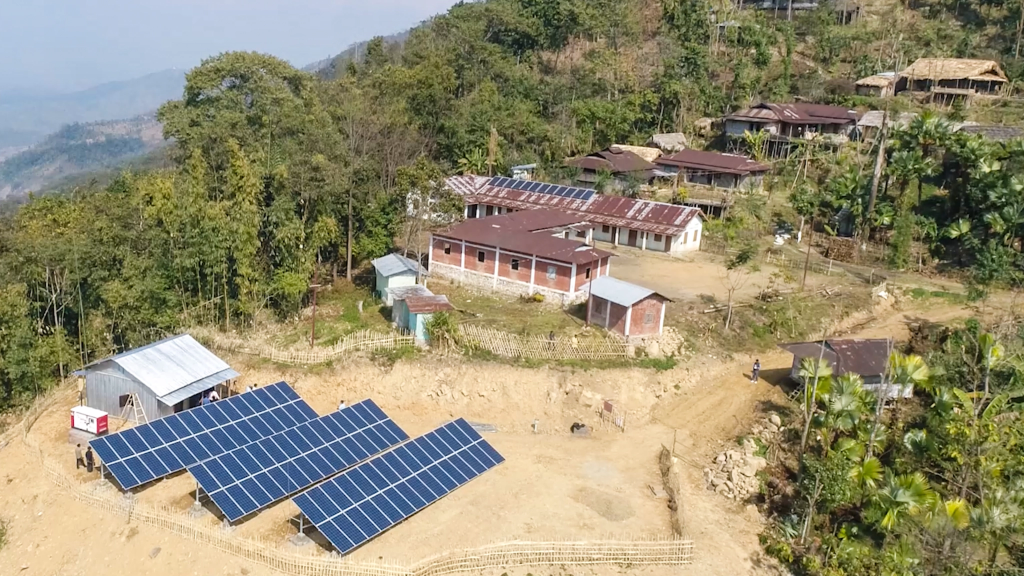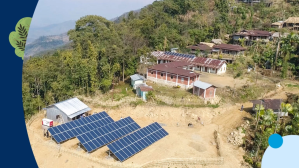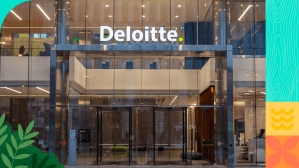First-of-its-kind purchase helps scale new, high-impact projects in Brazil, India, sub-Saharan Africa, and Southeast Asia that advance a just and inclusive energy transition
Eight-year contract enables Salesforce to maintain its renewable energy commitment and delivers clean energy access in regions highly dependent on fossil fuels
Salesforce purchase will help unlock an estimated $65 million of investments in new solar capacity and is expected to avoid over 50,000 tonnes of CO² emissions annually
Today at GreenBiz 23, Salesforce announced it will purchase 280,000 megawatt hours (MWh) of renewable energy certificates from small, distributed energy projects over the next eight years to accelerate clean electricity access in emerging markets and help maintain its commitment to match 100% of the electricity it uses with renewables.
Salesforce has contracted with Powertrust, an aggregator of high-impact renewables around the world, and will leverage Distributed Renewable Energy Certificates (D-RECs) – an innovative financial mechanism that enables organizations to accelerate deployment of capital for small-scale, distributed renewable projects – to drive this new clean energy supply.
Today, more than 750 million people lack access to basic electricity, while 2 billion more suffer from inadequate and unreliable access. Distributed renewable energy projects can provide much needed access to electricity and help reduce emissions in communities around the globe. However, until now, emerging countries have been largely excluded from corporate purchasing for a number of reasons, including difficulty aggregating and certifying multiple small-scale projects.
“Nearly 95% of corporate renewable energy purchases today take place in North America and Europe. We need to ensure the rest of the world isn’t left behind,” said Megan Lorenzen, who leads power sector decarbonization for Salesforce and is co-author of the More than a Megawatt report.
Small, decentralized renewable energy projects can, in many cases, deliver greater impact than large utility-scale facilities. Especially in regions where energy access is limited, these projects can positively transform lives and communities around the globe.
Megan Lorenzen

Photo credit: Hamara Grid
Salesforce purchase helps drive critical social and environmental benefits
Salesforce’s D-RECs purchase will focus on procuring projects in non-traditional markets to help deliver social and environmental benefits to communities. Potential projects within this portfolio include:
- Brazil: A project that aims to replace old diesel generators with a solar-powered microgrid for a remote community along the Amazon River, reducing fuel consumption by more than 50% and benefitting around 1,000 people.
- India: A solar-powered microgrid in Nagaland, an eastern state in India, where an isolated mountain community will receive electricity for the first time. In addition to initial energy access, the community will receive training on how to use the energy productively, such as for operating rice hullers.
- Sub-Saharan Africa: A solar and storage installation at a hospital that will help improve electricity reliability while controlling rising electricity costs. The system will power ventilators, organ support equipment, and operating rooms. Moreover, 30-40% of the direct jobs created by these projects will be assigned to women.
- Southeast Asia: A solar microgrid in the Borneo region of Malaysia, which is home to 72% of rural Malaysians who lack access to electricity. The project will pair a solar system with a micro-hydro installation to provide reliable power.
“Salesforce was instrumental in the development of this high-impact procurement approach,” said Nick Fedorkiw, CEO, Powertrust. “However, the impact of this commitment goes far beyond Salesforce’s purchase. Companies across the globe have an appetite for high-impact renewable energy purchases and can’t find the supply they need. Now, as proven by Salesforce, companies can open up new sources of supply while maximizing social impact.”
These projects will be located in schools, hospitals, public service facilities, or in disadvantaged communities and deliver on the UN Sustainable Development Goals outcomes aligned to climate resilience (goals 9 and 11), universal energy access (goal 7), gender equality (goal 5).
This initiative also demonstrates Salesforce’s commitment to the newly established climate justice policy priorities to help drive an equitable transition to net zero.
Significant financing needed to achieve equitable access to electricity
To reach global net zero emissions, annual investments in clean energy need to expand to $1 trillion by 2030 – a 3x increase from existing levels. This must include mobilizing billions of dollars per year toward new clean energy infrastructure in emerging markets to ensure equitable access to electricity.
As part of this global net zero focus, Salesforce also joined nine other leading companies in launching the Emission First initiative. The initiative calls for accounting standards to shift to allow corporate procurements to look beyond traditional markets like North America and Europe and focus on decarbonization in regions where the world needs it the most.
More information:
- Learn about Salesforce’s latest sustainability investments here.
- Read Salesforce’s Climate Action Plan.
- Learn more about how Net Zero Cloud can help organizations reduce costs and emissions all at once.
- Learn how Powertrust is sourcing high-impact renewables in emerging markets.















